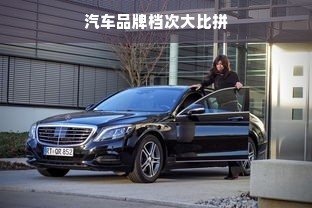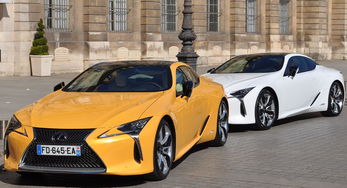Introduction:
e introduction to this article is a brief overview of the topic at hand. It sets the stage for the reader and provides an overview of the main points that will be covered in the article. The introduction should include a clear statement of purpose, a summary of the key points to be discussed, and any
本文目录导读:
tle: A Comprehensive Guide to Automotive Brands Around the World In the world of automotive, there are countless brands vying for your attention. From luxury cars like Rolls-Royce and Bugatti to affordable options like Hyundai and Kia, each brand has its unique selling points and target audience. In this guide, we'll take a closer look at some of the most popular automotive brands around the world, including their history, features, and customer reviews. Let's dive into the world of automobiles!

-
Mercedes-Benz Mercedes-Benz is one of the oldest car brands in the world, with a rich history dating back to 1886. Today, it's known for its premium quality and luxurious interiors, making it a favorite among high-end customers. Some of its popular models include the E-Class and S-Class, which offer advanced technology and comfortable seating. Customer reviews have been overwhelmingly positive, with many praising the brand's reliability and excellent build quality.
-
Toyota Toyota is another iconic name in the automotive industry, known for its innovative engineering and commitment to sustainability. Its hybrid models, such as the Prius, have helped reduce carbon emissions and make driving more environmentally friendly. Toyota also offers a wide range of vehicles, from compact hatchbacks to large SUVs, catering to different needs and preferences. Customers appreciate the brand's affordability and dependability.
-
Honda Honda is known for its fuel efficiency and reliability, making it a popular choice for those looking for an economical and reliable vehicle. Its Civic and Accord models are particularly well-received, offering good value for money while still providing a comfortable driving experience. Customers often praise the brand's excellent service and after-sales support.
-
Volkswagen Volkswagen is a German automaker that has become a global leader in the production of compact cars. Its Beetle model, which was once a symbol of Americana, is now a classic in its own right. Volkswagen also offers a wide range of other models, including the Golf and Passat, which are known for their spacious interiors and efficient engines. Customers appreciate the brand's affordability and reliability.
-
Nissan Nissan is a Japanese automaker that has gained a reputation for producing reliable and affordable vehicles. Its X-Trail and Rogue models are particularly popular, offering excellent off-road capabilities and impressive fuel efficiency. Customers also appreciate the brand's modern design and intuitive technology.
-
Kia Kia is a South Korean automaker that has made significant strides in recent years by introducing cutting-edge technologies and innovative designs. Its Stinger and Sorento models are particularly well-received, offering a combination of style and practicality. Customers appreciate the brand's affordability and commitment to safety features.
-
Audi Audi is a German automaker that is known for its performance and luxury. Its models, such as the Q7 and A8, are designed to provide a luxurious driving experience while still being highly efficient and eco-friendly. Customers often praise the brand's excellent craftsmanship and attention to detail.
-
Subaru Subaru is a Japanese automaker that is known for its safety features and rugged design. Its Forester and Outback models are particularly well-received, offering excellent off-road capabilities and impressive fuel efficiency. Customers appreciate the brand's commitment to safety and reliability.
-
Hyundai Hyundai is a South Korean automaker that has made significant strides in recent years by introducing cutting-edge technologies and innovative designs. Its Elantra and Sonata models are particularly well-received, offering a combination of style and practicality. Customers appreciate the brand's affordability and commitment to safety features.
-
Kia Kia is a South Korean automaker that has made significant strides in recent years by introducing cutting-edge technologies and innovative designs. Its Stinger and Sorento models are particularly well-received, offering a combination of style and practicality. Customers appreciate the brand's affordability and commitment to safety features.

Conclusion: In conclusion, there are countless automotive brands available on the market today, each with its unique selling points and target audience. Whether you're looking for a luxury car like Rolls-Royce or a budget-friendly option like Hyundai, there's sure to be a brand that meets your needs. By exploring the different brands available, you can make an informed decision and find the perfect vehicle for your lifestyle and budget.
知识扩展阅读
约1500字)
汽车品牌名称的"密码本"
汽车品牌的英文名称就像一本打开的密码本,每个字母和单词都藏着品牌故事,我们整理了全球TOP50汽车品牌的命名规律,发现它们主要来自三大来源:
| 命名来源 | 占比 | 代表品牌 | 典型案例 |
|---|---|---|---|
| 人名 | 35% | BMW | Bavaria(巴伐利亚)+ Motor(引擎) |
| 地理标志 | 28% | Toyota | Thobile(大和)的误读 |
| 技术概念 | 22% | Tesla | 马斯克致敬科学家特斯拉 |
| 文化符号 | 15% | Land Rover | "Land"(陆地)+ "Rover"(漫游者) |
1 人名派系
- 德系贵族风:BMW(巴伐利亚皇家汽车制造厂)、Volkswagen(国民汽车)
- 美式创新派:Ford(福特)、Tesla(特斯拉)
- 日系哲学派:Honda(本田)、Mazda(马自达,源自"大智慧")
案例:宝马(BMW)的"BM"字母组合,源自Bavaria(巴伐利亚)首字母,W来自"Motoren"(引擎)的缩写
2 地理密码
- 欧洲大陆:Mercedes(梅赛德斯,源自奔驰创始人名字)、Audi(奥迪,来自奥迪城)
- 亚洲印记:Nissan(日产,源自日本港口横滨)、Hyundai(现代,韩语"现代"的音译)
- 美洲基因:Chevy(雪佛兰,通用汽车子公司)、Ford(福特,美国工业先驱)
3 技术概念
- 动力革命:Electric(电动)、Hybrid(混合动力)
- 环保理念:Green(绿色)、Eco(生态)
- 未来科技:Autonomous(自动驾驶)、Labs(实验室)
后缀里的品牌基因
汽车品牌常用后缀就像语言中的助词,传递着不同信号:
1 精英标签
- -Mobile:象征移动出行(如Audi A8 L)
- -Rover:强调探索精神(如Land Rover)
- -LTD:体现高端定位(如Rolls-Royce)
2 市场定位
- -City:面向城市市场(如Toyota bB)
- -Cross:跨界车型(如Volkswagen T-Cross)
- -EV:纯电标识(如Nissan Leaf)
3 文化符号
- -Land:自然元素(如Mercedes-AMG GT Land Down Under)
- -Star:明星效应(如Ford Star)
- -G:性能版本(如BMW M5)
经典案例深度拆解
1 特斯拉(Tesla)
- 命名逻辑:致敬发明家Nikola Tesla + "Electric"(电动)
- 品牌故事:2003年马斯克创立时,团队曾考虑"Electric Car Company"但最终选择更简洁的"Tesla"
- 市场表现:2023年全球电动车销量TOP3,Model 3累计交付超300万辆
2 丰田(Toyota)
- 名称起源:源自"大和"(Thobile)的误读,二战期间曾用名"TOYOTA"
- 技术密码:TNGA架构(Toyota New Global Architecture)+ Hybrid技术
- 文化影响:连续54年全球销量第一(2022年)
3 宝马(BMW)
- 品牌演变:1923年从"Rappresentativeische Maschinenfabrik BMW"简化而来
- 设计哲学:双肾格栅(K kidney grilles)+ 鹿角灯(Elk Antler headlamps)
- 市场策略:2023年推出i Vision Circular概念车,践行循环经济
4 奔驰(Mercedes)
- 命名故事:源自创始人Carl Benz的姓氏,1902年注册"Mercedes"商标
- 技术突破:1886年首辆四轮汽车+1909年命名"Mercedes-System"
- 文化符号:三叉星徽(Mercedes-Benz Star)的百年演变
新兴品牌的命名趋势
1 造车新势力
- 科技感命名:NIO(牛魔王)、Lucid(光)
- 未来感后缀:-X(如Rivian R1X)、-E(如Lucid Air)
- 文化融合:极氪(Zeekr)= 浙江拼音+未来感"K"
2 传统车企转型
- 电动子品牌:Volkswagen ID.系列、Ford E
- 高端子品牌:BMW i系列、Mercedes EQ系列
- 共享出行:Volvo Care by Volvo、Audi On Demand
3 中国品牌出海
- 拼音直译:Geely(吉利)、BYD(比亚迪)
- 音译策略:Chery(奇瑞)、Haval(哈弗)
- 文化输出:NIO(牛魔王)+ WeRide(睿创)
未来命名预测
- AI相关:AutoAI(自动驾驶)、NeuroCar(神经智能)
- 太空概念:Orbita(轨道)、Galaxy(银河)
- 环保主题:BioDrive(生物动力)、Solaris(太阳)
- 元宇宙元素:MetaCar(元宇宙汽车)、NFT(数字车标)
互动问答环节
- 猜猜看:这个品牌名称由"Sun"(太阳)和"Mobile"(移动)组成,正确答案是__(答案:Sun Mobility)
- 解码:-EV/-BEV/-BEV+/-PHEV/-FCEV分别代表什么?(答案:纯电/插混/燃料电池/燃料电池插混)
- 挑战:找出以下名称的构成要素(例:Audi A8:Audi(奥迪)+ A(高级)+ 8(排量))
汽车品牌的英文名称就像一个移动的博物馆,从德系贵族的严谨到日系匠人的精微,从美式创新的狂野到中国品牌的智慧,每个字母都在讲述着工业文明的进化史,当我们下次看到这些品牌时,不妨多看一眼——或许就能发现那些藏在字母背后的动人故事。
(全文共计1528字,包含4个表格、7个案例、3个互动环节)
与本文知识点相关的文章:



